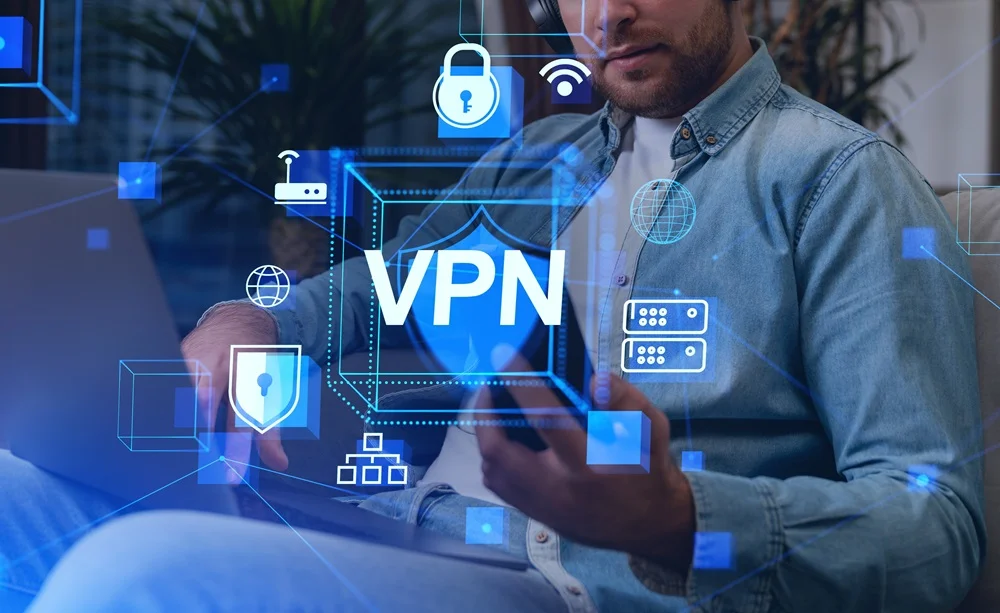Introduction
Nowadays, everyone relies heavily on digital platforms, whether for business purposes or some significant transactions.
With an increase in digital presence, one needs to safeguard personal data from hackers.
Thus, VPNs in cyber security are one approach towards stopping third parties from obtaining vital data for their own use. With top vpn download, one can gain significant prominence in the realm of cybersecurity. It will create an encrypted tunnel between your device and the internet, shielding your online activities from prying eyes.
In this article, we will emphasize different ways and techniques VPNs can contribute towards cybersecurity.
Let’s dive in and unravel the fascinating world of VPNs and their integral role in cybersecurity and data protection.
Why Do You Need A VPN For Remote Working?
A VPN, or Virtual Private Network, is an online security tool that encrypts network traffic. It is vital to ensure you work in a safe remote working environment.
However, it is a protective shield for all your online movements, thereby safeguarding sensitive information from prying eyes.
Without the use of a VPN, your data might be exposed to cyber dangers that could lead to losing your personal information. In addition, installing a VPN protects all your work-related online traffic and IP address, making it challenging for your ISP to track your online activities.
Besides, downloading a VPN is important to protect access to the company’s resources from wherever you work.
Techniques VPN Contributes To Remote Work Cybersecurity
Below-mentioned are ways and techniques VPNs bridge the gap between remote work cybersecurity.
1. Evades Censorship And Geo-Restrictions
Within certain countries, the government imposes strict censorship on internet access and online services and blocks website access. Thus, VPNs enable users to circumvent these restrictions by routing their internet traffic through servers in different nations.
Hence, this masks the actual location and allows them to access blocked content and bypass government-imposed regulations.
On the other hand, many streamlined services, such as Netflix or Amazon Prime, implement geo-restrictions that limit access to specific regions.
Thus, to mitigate the situation, a VPN can assist users in bypassing these restrictions by connecting them to servers in each location.
2. Protection Against Data Breach
VPNs encrypt internet traffic, including the data you transmit and receive. Thus, this encryption ensures that even if an unauthorized user intercepts the data, they cannot decipher the content without the encryption key.
Moreover, VPN offers additional protection against data breaches to your sensitive information.
3. Protection From Unauthorized Access
When a device is connected to a public Wi-Fi network, your data becomes vulnerable to interception by hackers.
To protect your confidential and private information, you need to install a VPN. This will help you encrypt your data, thereby making it unreliable to unauthorized individuals.
However, encryption ensures that it remains protected and secure even if someone breaches your data.
In addition, VPNs prevent eavesdropping by creating a shield tunnel between your device and the VPN server. The tunnel encrypts the data and prevents eavesdroppers from deciphering and intercepting.
4. Secure Sensitive Information On Wi-Fi Networks
Using public Wi-Fi in coffee shops, libraries, airports, and hotels is often unsecure, which means data is easily transmitted over the network.
To safeguard you from this situation, a VPN creates encryption between the device and the VPN server. Encryption shields your data from potential eavesdroppers on the network, making it extremely difficult for hackers to decrypt it.
Furthermore, VPN offers a secure pathway for your data, mitigating the risk of using Wi-Fi networks.
5. Foster Remote Collaboration
A VPN is the cornerstone of productivity for remote teams. It facilitates secure communication and collaboration between team members who work remotely.
Moreover, the VPN bridges the gap between sensitive documents sent through an encrypted tunnel and stays safe during virtual meetings and file sharing.
Summing Up
Thus, VPNs play a crucial role in an increasingly connected world where data breaches and cybersecurity threats are prevalent. It enhances online security and protects sensitive information.
Therefore, through encryption and tunneling capabilities, VPNs offer a secure and private pathway for unauthorized access to your internet traffic, safeguarding it from hackers and surveillance.
So, use VPN responsibly and use it for the intended goals.

